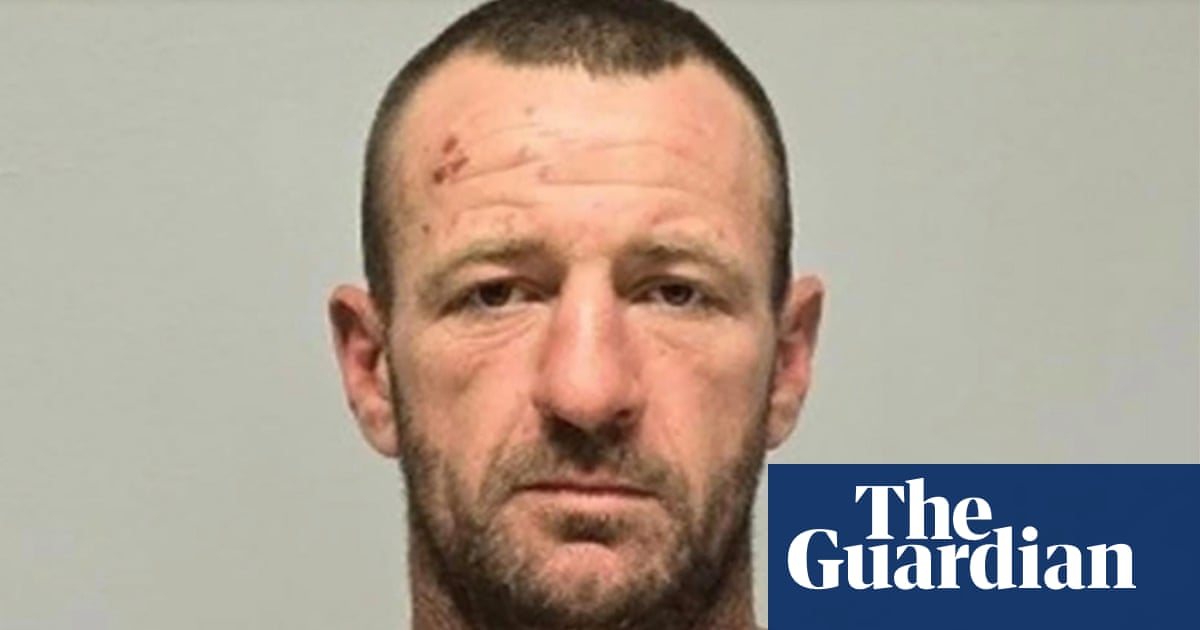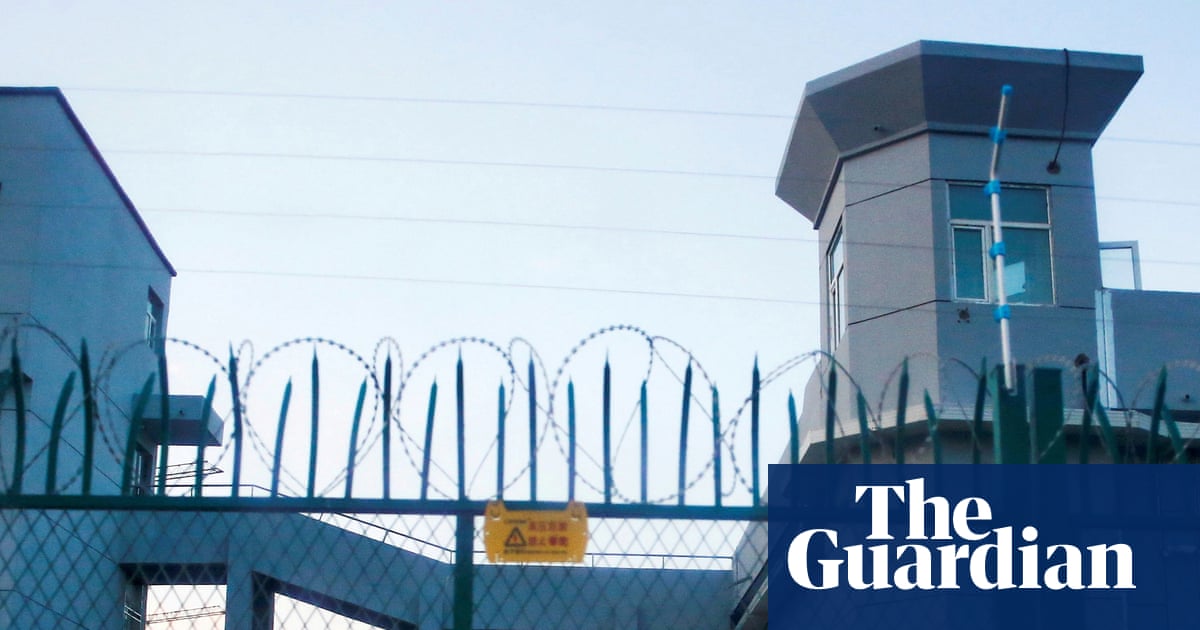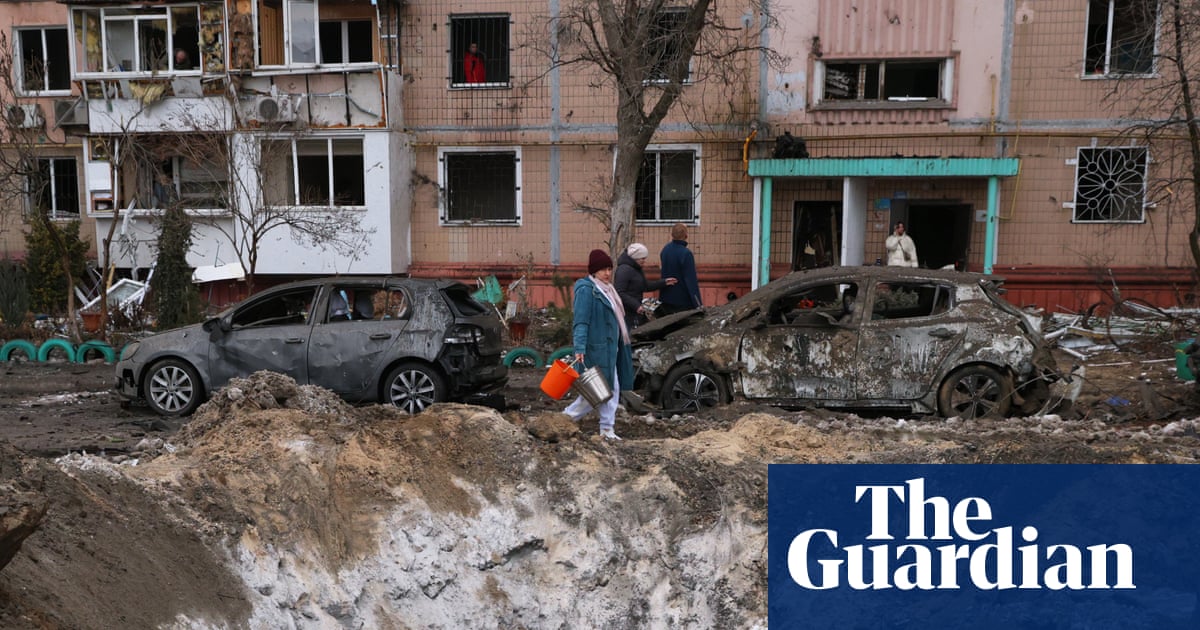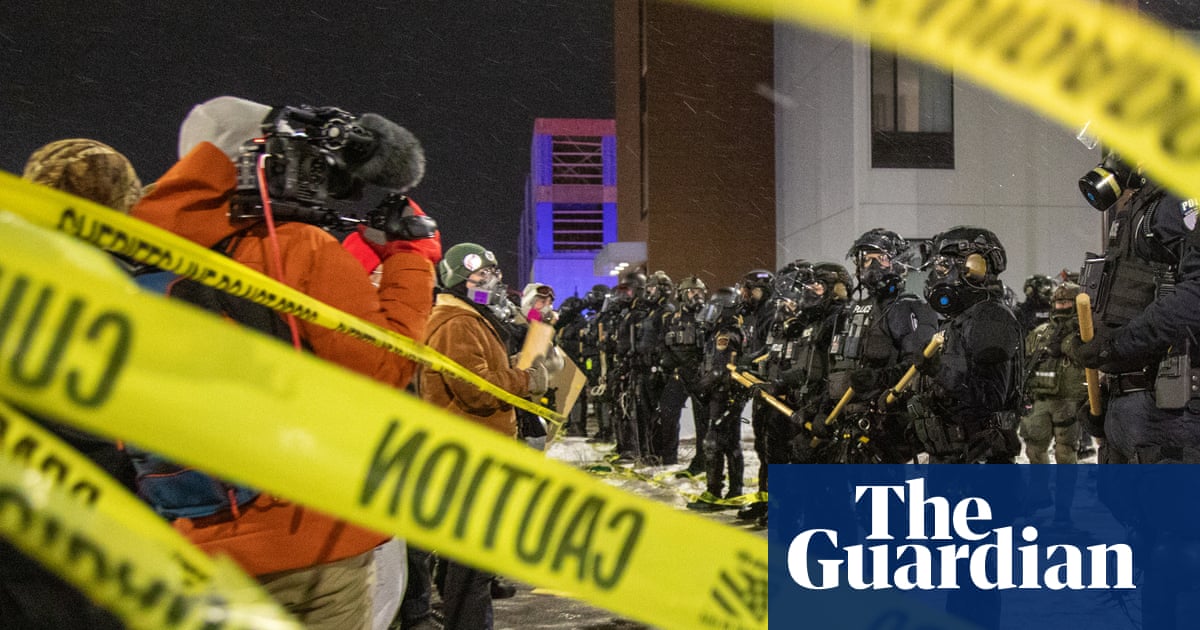It is a treacherous journey to Black River, a coastal town in Jamaica’s southwestern parish of St Elizabeth, which this week bore the brunt of Hurricane Melissa, one of the strongest Atlantic hurricanes on record.
Uprooted trees and lamp-posts, rubble from landslides, huge potholes and miles of thick, slippery silt from severe flooding have turned the route into a dangerous obstacle course. But most daunting is the water that you encounter as you pass through communities that overnight have become rivers.
The difficult conditions meant chaos on the roads to Black River on Thursday with vehicles stalling in the water and police and army personnel trying to manage long lines of slow-moving traffic in both directions. And along the way is mind-boggling destruction to buildings and homes, some of which were gutted or packed with debris.
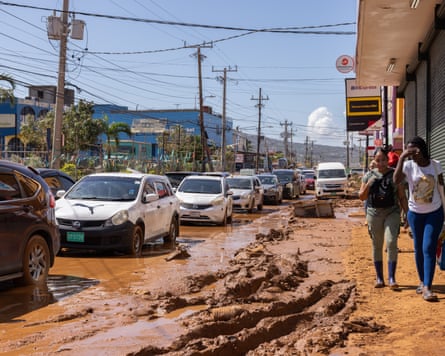
As you get closer to Black River, which has been described as ground zero for the category 5 hurricane’s impact, it becomes clear that almost every house and building has lost its roof. The town centre has been annihilated and now resembles a demolition site.
Among the crumpled buildings and streets filled with zinc sheets from roofs and other dangerous debris are people traumatised, bewildered, grieving and desperate for help. Families with children who appear to be setting up residence in a bus shelter and others scouring the debris for food are indications of an unfolding humanitarian crisis.
Some had come to Black River, the parish capital, from nearby devastated areas hoping to find aid, only to discover a scene of utter devastation.
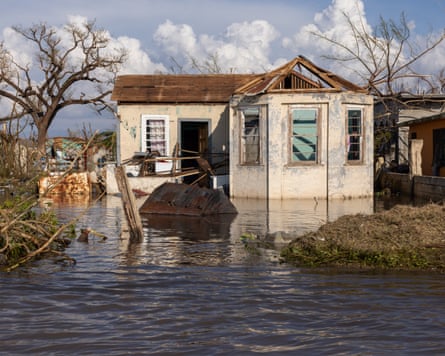
Speaking through tears, Beverly Stephens, who survived the storm with her son and elderly mother who is unable to walk, asked the Guardian to “tell the world that Jamaica needs help”. Having sought refuge in a room that had a reinforced roof, she said, she and her son spent three hours holding a door that the wind seemed intent on ripping off.
The death toll from the storm, which hit Jamaica, Cuba, Haiti and the Dominican Republic hardest, is thought to be 50 – 19 in Jamaica and 31 in Haiti – and is expected to rise. Communication networks remain largely down in Jamaica and Cuba and the full scale of the damage could take days to confirm.
The hurricane tied with a 1935 record for the most intense Atlantic storm ever to make landfall when it hit Jamaica on Tuesday, according to the US National Oceanic and Atmospheric Administration.
One woman in Black River told the Guardian she was on the way to the police station to report a death. Another, choking back tears, said she had lost everything.
Annette Royal, who was visiting Black River from the western parish of Westmoreland, said every house in her area was hit. “The country mash up” she said. “We need food, we need water, we need shelter, we need everything to survive, because if we don’t get all of things we will suffer in Jamaica.”
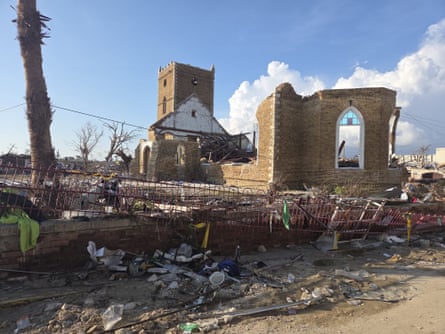
Aston McCatty, a religious education teacher, said it was clear it would take “billions upon billions” to rebuild. Pointing across the road to a demolished parish church, he said: “You are looking at hundreds of years of history, in one day totally destroyed. How do you rebuild all of this? Nobody in Jamaica can say they have ever seen anything like it.”
In the nearby tourism community of Treasure Beach, residents were also stunned by the unprecedented power of Melissa, which had swept away an entire beachfront restaurant, leaving no trace of its existence, and dragged tombs out of their place.
Allan Daley, 67, a fisher, said his house lost part of its roof and his boat was severely damaged by a large shipping container smashing into it.
“I am 67, I went through hurricanes, including Gilbert, and I have never seen anything like this,” he said. “It was the hardest wind I ever felt in my life. The foundation structure in my house is concrete and I could feel it moving.”
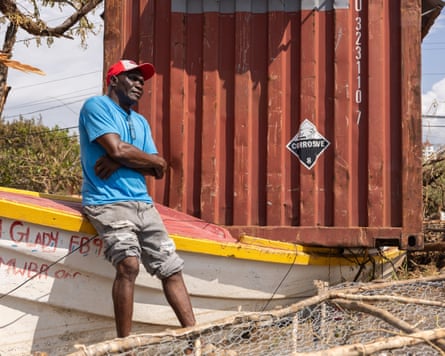
Owen Clarke, a hotel owner who for a second year in a row faces having to rebuild his properties, after they were also damaged by Hurricane Beryl last summer, called for more support for businesses affected by hurricanes. “It’s really bad. We don’t have electricity, we need material like zinc, board, cement, steel, nails,” he said.
Tourists caught up in the storm were also on the beach on Thursday assessing the damage. Sri Sudevi, from Islington in London, and her daughter Rachel Dimond, who had come to Jamaica for a two-week holiday, said they had to flee their accommodation and head to the hills when it became clear the hurricane was going to be a major threat.
Describing the people of Treasure Beach as strong, resilient and friendly, Sudevi said she had been having a wonderful holiday before Melissa struck.
Dimond, who was stranded in Treasure Beach in 2020 during the Covid-19 crisis, said that during the hurricane she was particularly concerned about not being able to communicate with family in the UK after she lost power and cell and internet services. But she said: “Treasure Beach people look after each other, they keep each other safe, so I knew that I was in safe hands. If I have to be anywhere for a hurricane, I’d be in Treasure Beach.”
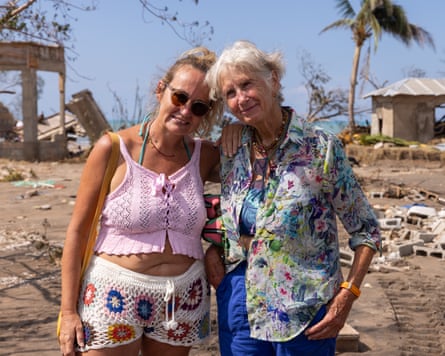
Near the beach, Candace Dryden, a local chef who was leading a World Food Kitchen operation to provide hot meals and drinking water to residents who had no power or running water, said: “A warm plate of food will remind people that they’re still home.”
She said: “We’re just a little bit uncomfortable right now but we still have each other and we’re still here cooking with love.”
Theresa Rodriguez-Moodie, the chief executive of the Jamaica Environment Trust, said Melissa’s strength and slow movement were “clear signs of climate change”.
“The science shows that while we may not see more storms overall, the ones we do get are becoming stronger, wetter and more destructive. Category 4 and 5 hurricanes are now more frequent in our region,” she said.
“For the Caribbean, this means more intense storms like Melissa, longer recovery times and greater social and economic strain. If global emissions aren’t drastically reduced, these kinds of events will become more of the norm.”
Leaving St Elizabeth in the late evening, heavy-duty military vehicles stacked with mattresses and other supplies could be seen navigating the difficult roads to bring what people hope will be relief for those caught in Melissa’s aftermath.

 2 months ago
45
2 months ago
45

